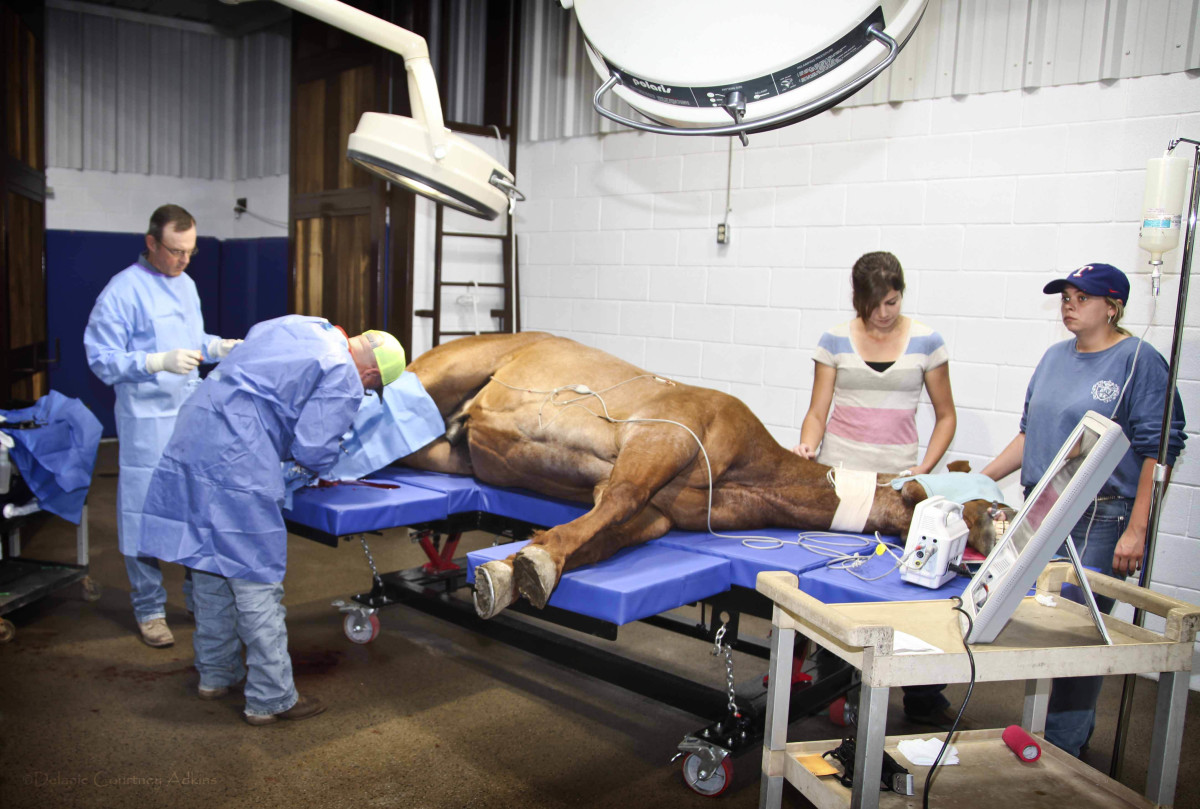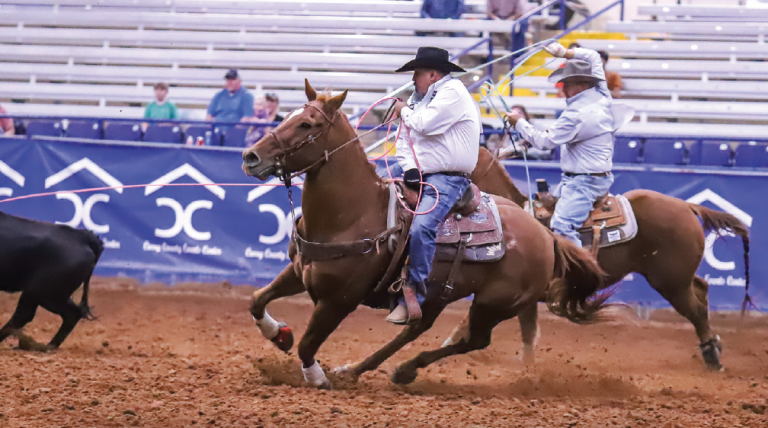In addition to being an equine veterinarian in Abilene, Texas, for the last two decades, Dr. Randy Lewis is also quite the comedian. His bio on the West Texas Equine Clinic’s website certainly hints at this characteristic, but, when asked if he’d be interested in an interview about what he does outside of the arena, Lewis, 49, didn’t skip a beat.
“I had no idea you all knew I was a male gigolo.”
He followed up the icebreaker with a hefty chuckle, leaving the impression that it’s probably mighty fun to sit arena-side with this 6 heeler, who emphasizes the value of relationships when it comes to his actual professional endeavors.
“That’s my favorite part, for sure. I mean I enjoy the horses, no doubt, and I truly do, but I enjoy the relationships I make with people as much as anything. I graduated in 1997, so it’s been 22 years. The personal relationships that I’ve made with my clients and seeing their kids grow up and compete with their horses and be successful, those are the ones that stand out—when I get to see those kids go from play days to junior high school rodeo to high school rodeos and some go on to rodeo professionally and to see those transitions and be around those families as they’re on their journey, that’s what I remember the most.”
Lewis shares his life with his wife—a small animal veterinarian whom he met in vet school—and their teenaged son, 19, and daughter, 16; but his love of roping is all his.
“All of them can and do ride,” Lewis explained. “If I go to a roping, they’ll warm up horses for me, or whatever, but they’ve never been overly interested in the horses that much. Doing what I do, I get to see a number of kids that it gets pushed on, and I always told myself I wouldn’t be that guy, and so, if they wanted to do it, great, and if they wanted to chase butterflies, I’d buy them a net.”
Lewis, however, definitely caught the roping bug.
“I really didn’t start team roping until I was in high school. I roped a good bit in college and, during vet school, it was just about my only escape from 24 hours a day, seven days a week for four solid years. I bet I didn’t get to rope a dozen times in those four years but it was what gave me reason to think, ‘I’m going to make it through these tests because there’s a jackpot this weekend,’ and then see what it was that I was chasing to begin with.”
For Lewis, the chase really did begin early in life. So early, in fact, he doesn’t remember a time when he didn’t know he wanted to be a veterinarian. His passion for it, in fact, was so determined that it even garnered the decades-long attention of iconic cutting horse trainer Buster Welch.
“When my parents worked for him, he lived at Trent, just West of Abilene, and they lived there till I was probably 5 or 6, I guess. Buster and Shayla knew from a pretty early age that that’s what I wanted to do, so, anytime they would see my parents after that, they wanted to know, ‘How is Randy getting along? Is he still wanting to go to vet school?’ Of course, [my parents] always said, ‘yes,’ and so they both told my parents my whole life, ‘When that boy gets ready to go to vet school you let us know, ‘cause we want to help.’ So, when I got ready to apply to vet school, Buster filled out a recommendation for me.”

Lewis goes on to say that the recommendation had more to do with Welch’s qualities than his own, but when he talks about what keeps him roping today, it’s easy to imagine that Welch, with his keen eye for good horses, may not have found it terribly difficult to see Lewis’ drive and ambition.
“Doing what I do, I’m a bit of a perfectionist and I always feel like I’m just a tick from getting it figured out, so, I’m always chasing that perfection. That and the competition. I love the competition. I am a competitive person by nature. I would race you to the road and back for a quarter. Just for the fact of the competition. I crave it. So, it’s a combination of those two things.”
The challenge of being a perfectionist, of course, is getting out of your own way when push comes to shove—a predicament Lewis is not unfamiliar with.
“Everything else in my life, if I think about it hard enough and I think my way through it enough, then I can accomplish anything,” Lewis said. “And what I’ve found in team roping is, if you try to think your way through it, it ends up falling apart. But, if you allow it to be muscle memory and reaction, that’s when you can do your best.”
Lewis points to his second-place standing that earned him and header Megan White a check for $263,000 in the 2015 #10 WSTR Finale.
“The best runs of my life, I don’t remember, like the short-round steer when we won all the money in 2015. I remember sitting in the box, and I remember pulling back on two feet, but I couldn’t tell you at all what happened in between. But the times that I haven’t done well, I could tell you what I did , what my header did, what the steer did, what the announcer said during our run, what song was playing, and what I did with my loop. And, at the end of that whole story is always, ‘And I missed.’ That’s been the hardest thing for me to do, is to get my mind out of the way.”
It’s a challenge Lewis doesn’t back down from, and he seeks help from the best in the industry to address it.
“I placed fourth in the #11 [WSTR Finale] in 2013 with Lari Dee Guy* and she has been a big, big part of my team roping success. I go out and rope with her pretty regular. And you know, I’ve taken lessons from a lot of the professionals—most of the world champions over the last 15, 20 years—but nobody has improved my roping as much as Lari Dee has. She’s just such a horseman, and her competitive approach is so different, and she has really changed my roping dramatically.”
Predictably, Lewis’ attention in the arena isn’t focused solely on his roping.
“If I wasn’t a veterinarian, the big thing for me would be, do my horses score well? Do they run hard? Do they stay in my hand? Do they stop square? But, when they don’t do those things, is it related to a lameness problem? Is it a tack problem? The people that do the best are the people that truly listen to their horses and pay attention to what they’re doing and especially to their approach to what they do. When horses get to a point where they don’t like their job, there’s usually a reason. And it’s just a matter of figuring out what it is.”











